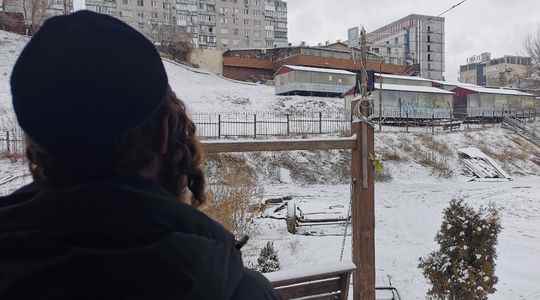The scenes of jubilation follow one another and resemble each other at Tel Aviv airport. Every day, hundreds of Ukrainian refugees arrive in special planes and leave cheered by Israelis, with patriotic songs and distribution of cakes. The “return home” of the Ukrainian brothers is celebrated with dignity. “We did not expect such a welcome, testifies Inna, a young woman who has just arrived from southern Ukraine. After the horrors we have just gone through, it warms the heart. I feel really safe here. ” Under the “law of return”, Inna will immediately obtain Israeli nationality, then benefit for several months from free housing and a monthly allowance, the time to fit into the labor market.
From the first sounds of Russian boots, Israel made the immigration of Jews from Ukraine a top priority. The Jewish Agency, the parastatal body responsible for stimulating and organizing Jewish immigration to Israel, has mobilized hundreds of permanent staff in Eastern Europe. In the city of Warsaw alone, it has rented 4,000 hotel rooms to house refugees pending the verification of their files. “6,000 people have already opened emigration files, but we are still waiting for tens of thousands,” said Yaakov Hagoel, director of the Jewish Agency.
Israel must act quickly, because the country finds itself “in competition” with several European countries wishing to welcome Ukrainian refugees, Jews or non-Jews. “We are in a race against time, because countries like Austria or Germany offer much faster administrative procedures than ours and Ukrainian Jews may be tempted to settle there instead of coming to Israel. “, worries Eliezer Lesovoy, head of an organization promoting Jewish immigration. According to estimates by the Jewish Agency, at least 150,000 Ukrainians would be eligible for the law of return. Conceived as a negative of the Nuremberg Laws, it offers Israeli nationality to any descendant of at least one Jewish grandparent.
Prodigious integration of Russian-speaking Jews
If the reception of non-Jewish Ukrainian refugees has sparked a lively debate in Israel (the country finally limited their number to 25,000), the immigration of Ukrainian Jews is obvious. “It constitutes the very foundation of the State of Israel, that cannot be discussed, deciphers Eliezer Shargorodsky, teacher of political science and Jewish identity. We live like a family. We can argue on this or that subject. , but not on the duty to help our Jewish brothers around the world.”
This historian knows intimately the passionate relationship that unites Israel and the Jews of the former USSR. Born in 1970 into a Jewish family in Saint Petersburg, Israeli since 1993, he followed the great wave of immigration of the 1990s from the inside. At the time, the collapse of the Soviet Union freed the “refuseniks “, these Jews prevented from emigrating to Israel by the communist regime. In their wake, the bulk of Russian-speaking Judaism, over 1 million people, reached the Promised Land within a decade.
Over the years, this massive immigration has proven to be a real blessing for Israel. “In the 1990s, they filled our schools with the best math and physics teachers we could dream of, and our hospitals, not with patients, but with the best teachers and doctors we could dream of, observes Eliezer Shargorodsky. They transformed Israel into a technological empire, the famous start-up nation. Thanks to them, Israel is leapfrogging on all levels.”
Kira Radinsky undoubtedly embodies better than anyone the prodigious integration of Russian-speaking Jews. Born in Kiev in 1986, she immigrated to Israel at the age of 4 with her single mother, Natacha. “We literally had twenty dollars in our pocket,” smiles the latter. After passing through the networks of excellence of the Israeli education system, Kira set up her start-up at the age of 25 and sold it four years later for 40 million dollars to Ebay. It is now one of the world leaders in big data. “We imported to Israel the cult of work and the love of mathematics acquired in the USSR”, analyzes Natacha Radinsky. Russian-speaking immigration, a chance for Israel.
